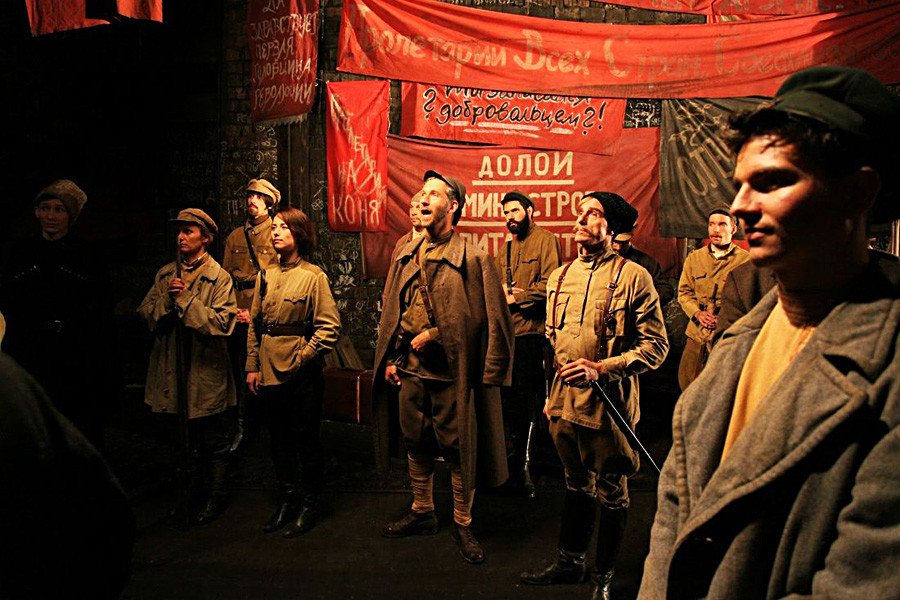
Screenshot from 'Buddha's Little Finger' movie
Tony Pemberton/Rohfilm, Amérique Film, Cine Plus, 2015Victor Pelevin’s first major novel was published in English under different titles: Buddha’s Little Finger (U.S.), and Clay Machine-Gun (UK). This is rather appropriate because the plot itself skips through various time
If that sounds confusing, it offers Pelevin, who is one of Russia’s most prolific authors, ample opportunity to discuss Russia’s past and present. Bringing the novel back from the brink of nonsense is an undercurrent of philosophy and eastern spirituality that, for many readers, runs through the book like a balm.
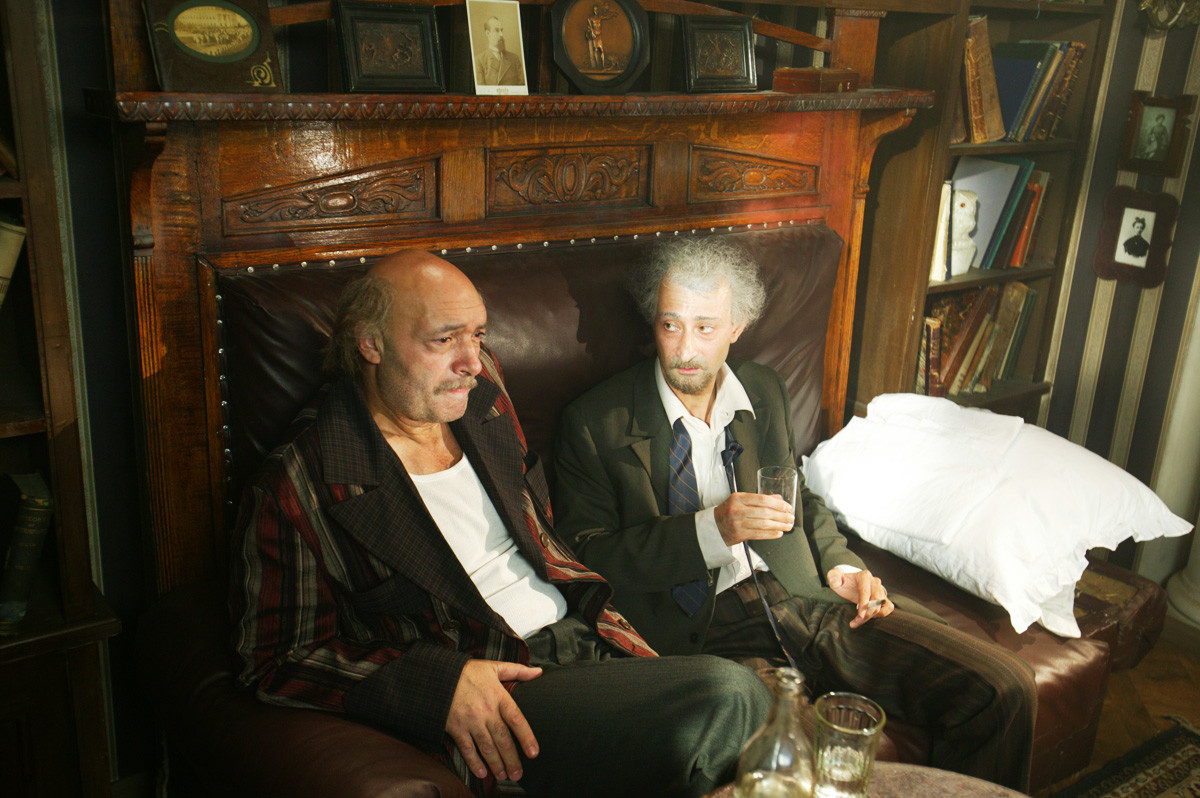
Screenshot from 'The Kukotsky Enigma' series
Yury Grymov/Yug Studio, NTV, 2005With The Kukotsky Enigma, Ludmila Ulitskaya became the first woman to win the prestigious Russian Booker Prize. Like many other books on this list, the novel combined commercial success with the exploration of profoundly difficult subjects; for example, she addresses the ways birth inescapably links life with death.
The novel’s protagonists are a Soviet obstetrician, the woman he saves (and falls in love with) on the operating table, and her daughter. Pregnancy, science and abortion are all incredibly hot topics, but Ulitskaya successfully avoids getting bogged down in plot or preachiness. Instead, she illuminates the subtle details in her characters’ lives.
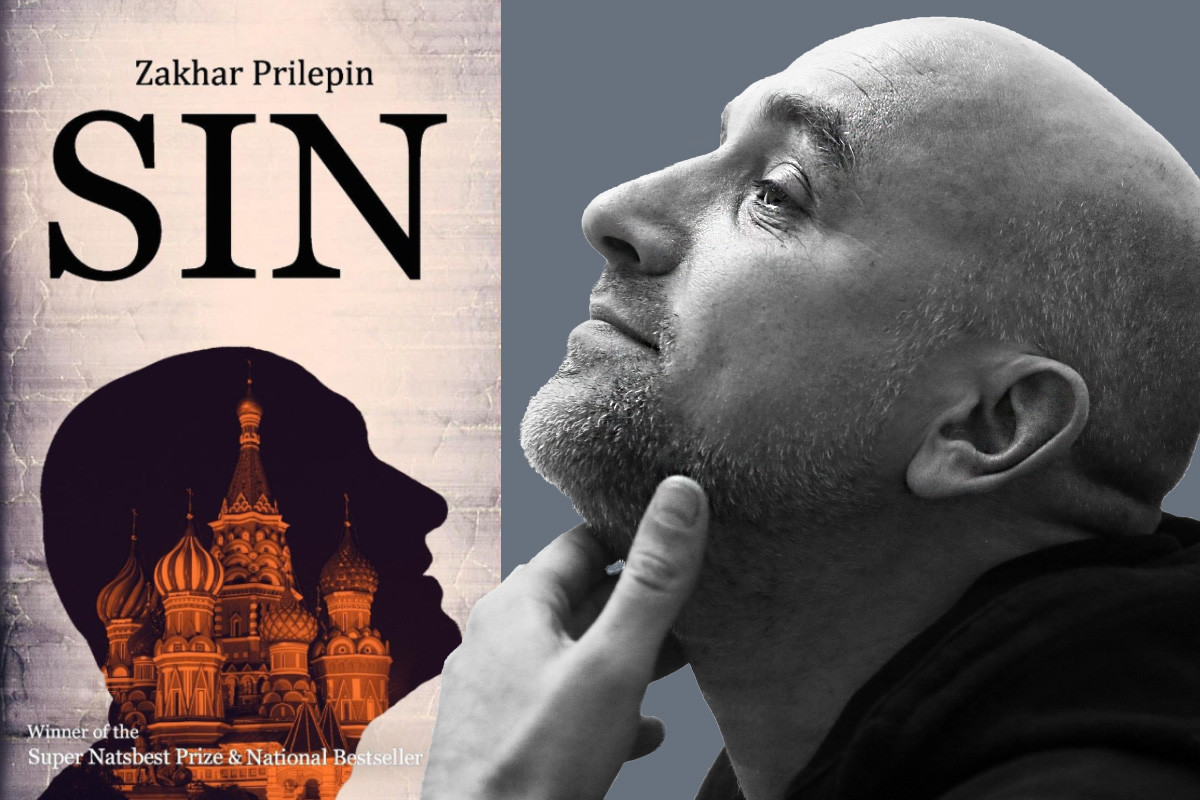
Zakhar Prilepin and 'Sin' book cover
Pavel Smertin/TASS, Zakhar Prilepin/Glagoslav, 2012The protagonist of Sin, a mirror image of its controversial author, floats through a series of vignettes that follow him from adolescence into adulthood. Each chapter resembles a short story, adding a sense of dislocation that contrasts with the subject matter as it draws closer to dramatic geopolitical events. The final setting is the war in Chechnya, and in contrast the minor moments Prilepin focuses on seem to pale in significance.
But these are the spaces, as the author seems to argue, where life exists. The material, ranging from the discovery of sex to the rootedness of family to, ultimately, life in the trenches, form an invitation to reflect on the relationships we have to each other, our loved ones and homelands that we may never be able to reconcile ourselves with.
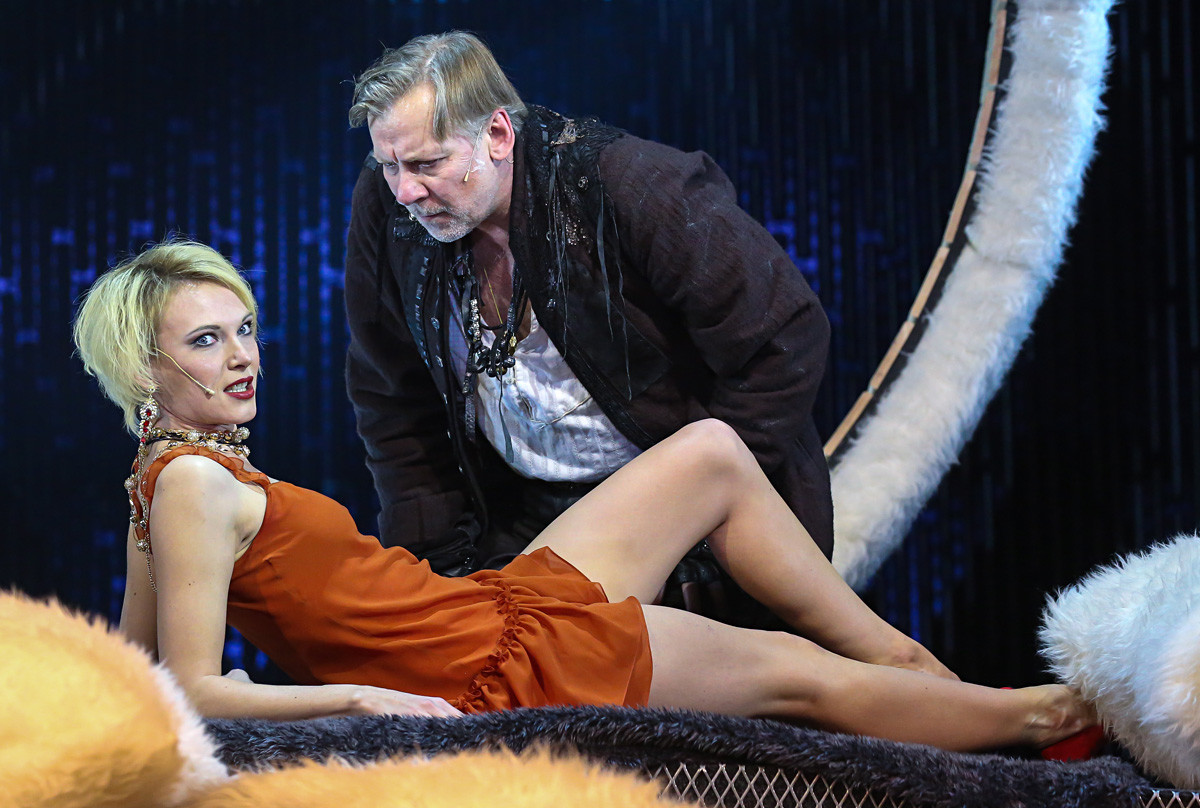
'Day of oprichnik' staging in Lenkom theater, Moscow
Artem Geodakyan/TASSA dystopian future that looks like the distant past isn’t anything new, but Vladimir Sorokin shocked the trope into new life by imagining a resurrected Russian Empire. Well before geopolitics would prove him eerily prophetic, Sorokin detailed an increasingly isolated Russia that uses dreams of former glory as the basis for a grand social vision.
The
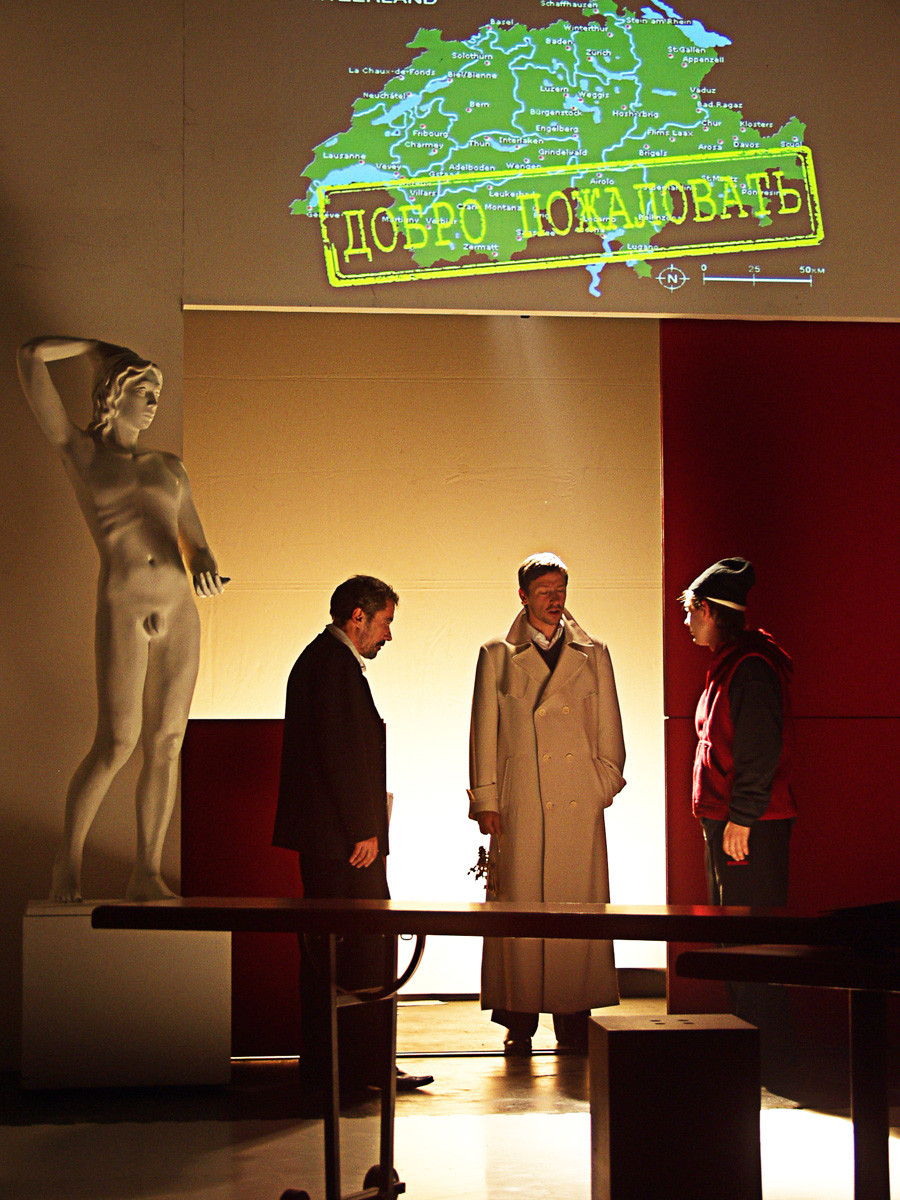
'The Main Thing' staging based on the novel 'Maidenhair'
Larisa Gerasimchuk/Pyotr Fomenko Workshop TheaterMuch of this novel, which is Mikhail Shishkin’s most critically acclaimed, is organized around questions and answers. This is only appropriate, since the protagonist works as an interpreter for interviews in a Swiss refugee camp. Asylum seekers pour in from troubled corners of the world, particularly from Chechnya, and must prove their tragic circumstances by reducing them to a quantifiable set of answers.
This is only one part of the novel, however. Shishkin’s prose weaves in ancient facts, diary entries
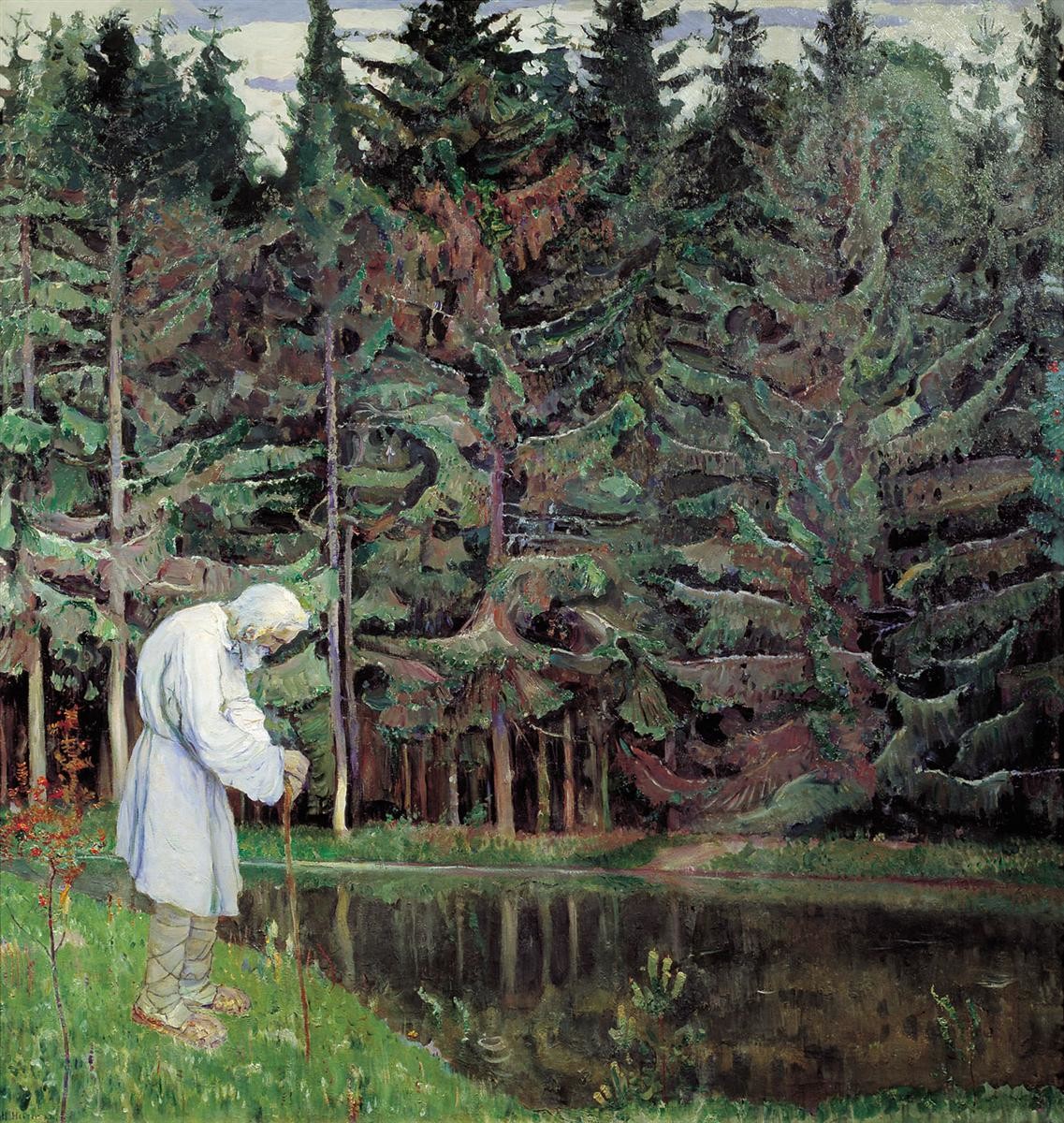
Mikhail Nesterov Elder. Abraham, the Servant of God, 1914
Samara Art museumA medieval healer named Arseny finds himself unable to save a loved one and chooses to wander ancient Russia seeking solace and redemption; he even makes a pilgrimage to Jerusalem where he meets several people who seek a connection to the divine. They are seen as holy fools and Arseny goes on to embrace the call, giving up his name and calling himself Laurus.
Unlike many novels on this list, Vodolazkin approaches themes such as faith, death, guilt
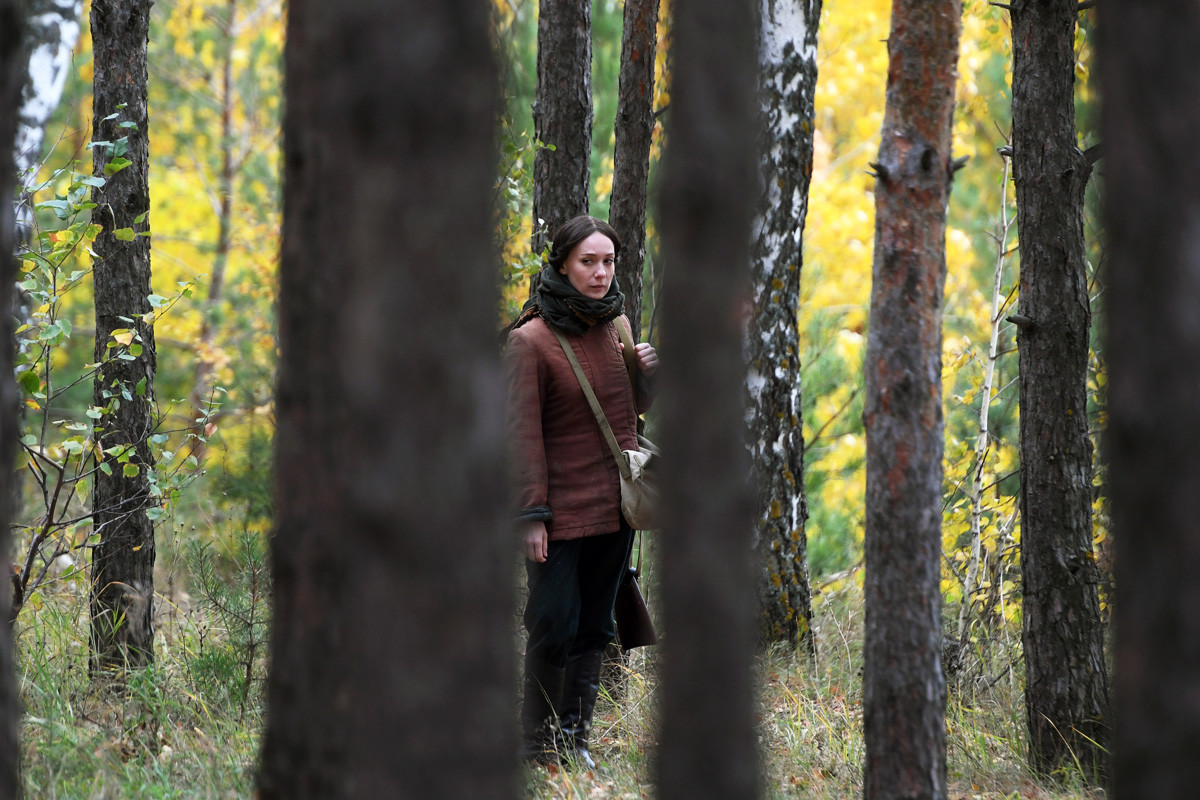
Actress Chulpan Khamatova starring in the new movie 'Zuleikha' directed by Egor Anashkin
Maxim Bogovid/SputnikGuzel Yakhina’s runaway sensation, Zuleikha, follows the life of a Tatar woman living in a world dominated by a mix of Islam, folklore and the strict limits of village life. One day her life changes dramatically: during Stalin’s brutal repressions she is sent to a Siberian prison camp where she gives birth, has to learn hunting and spends the winter sleeping in a cold hut in the taiga.
While many writers have attempted to comprehend Soviet history’s darkest moments, Yakhina finds a way to make it new. By following her journey into an inconceivable kind of hell, the illiterate Zuleikha provides a fresh set of eyes that stare into a history we all thought we knew. Compellingly in a Stalinist
If using any of Russia Beyond's content, partly or in full, always provide an active hyperlink to the original material.
Subscribe
to our newsletter!
Get the week's best stories straight to your inbox